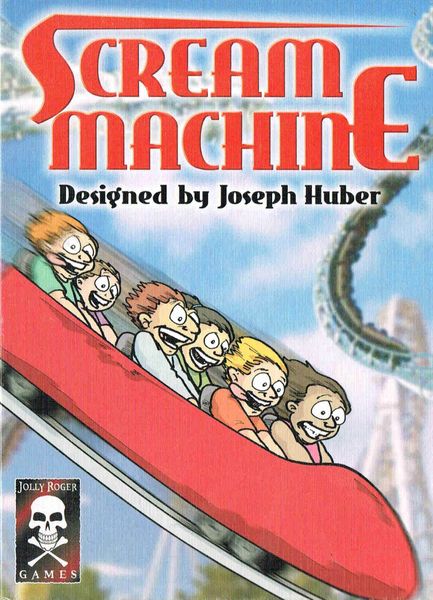Scream Machine (2003) Board Game
Scream Machine is a card game designed by Aaron Williams and released in in 2003. It is a set collection game that can be played by 3-6 players, with the best experience being for 3-4 players. The game is designed for players aged 7 and up and has a runtime of around 45 minutes. The game is published by Jolly Roger Games and falls under the category of card games.
Game Components of Scream Machine
How To Setup Scream Machine
To set up Scream Machine, each player starts with five attraction cards, known as their “in-house” designs. Players secretly select up to four building points worth of attractions to build their park, revealing their choices simultaneously. The selections can include one point attractions costing one building point, three point rides costing two building points, and five point attractions costing three building points. If a player uses only three building points, they can take the fourth point as a customer point. The remaining attraction cards are kept but not added to during this initial phase.
Gameplay Mechanics and Game Objective
Player Experience
Scream Machine offers a engaging and strategic experience, especially with 3 or 4 players. The game combines the theme of building an amusement park with the mechanics of a majority game, making it relatable and fun. However, with more players (5 or 6), the game can experience increased downtime as players spend more time analyzing the table and other players’ moves. The game favors players who go last in a round, as they can react to other players’ actions, but each player will have a chance to go last at least once during the game.
Pros
Cons
Personal Thoughts on Scream Machine
Scream Machine is ideal for families and casual gamers who enjoy strategic games with a relatable theme. It’s particularly enjoyable with 3 or 4 players, where the balance between strategy and luck is well-maintained. For those who like majority games with a twist, Scream Machine offers a unique and fun experience. However, players looking for a game with minimal downtime and less reliance on luck might find it less appealing with a larger player count.
We are supported by our audience. When you purchase through links on our site, we may earn an affiliate commission, at no extra cost for you. Learn more.

